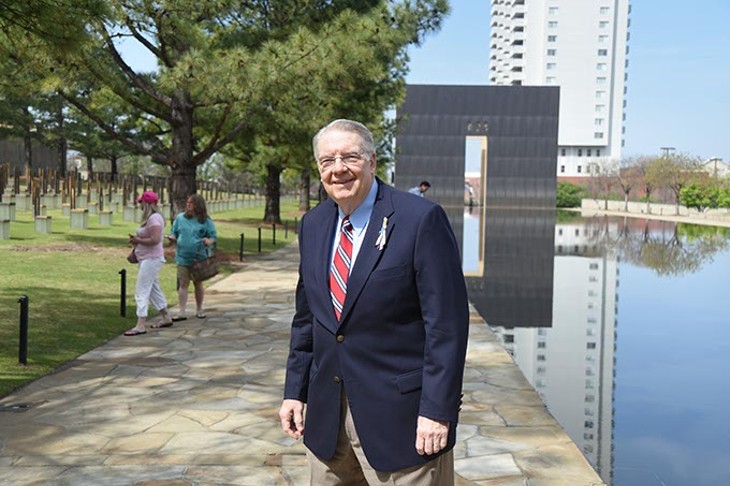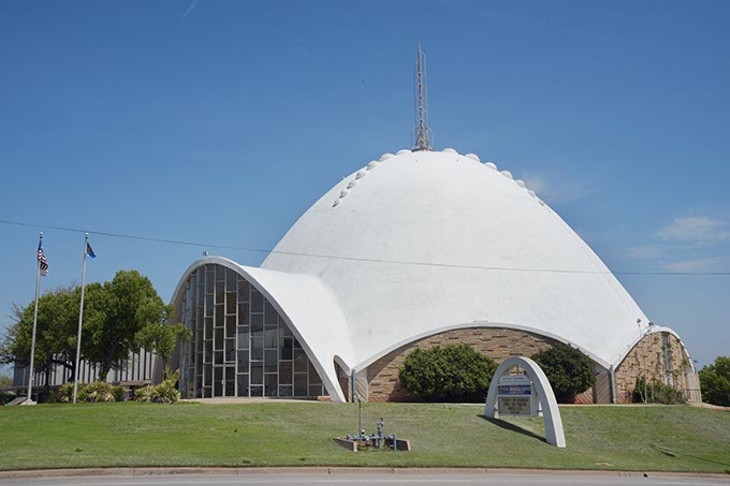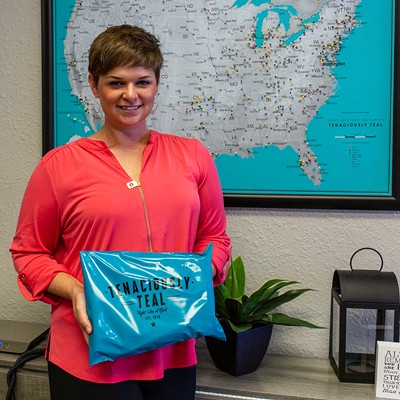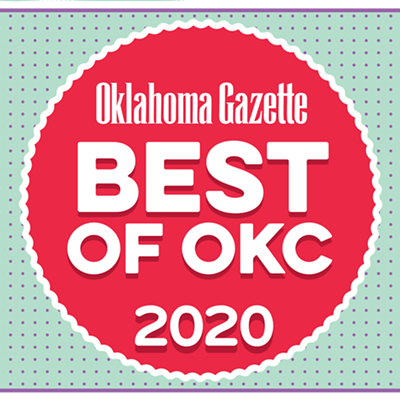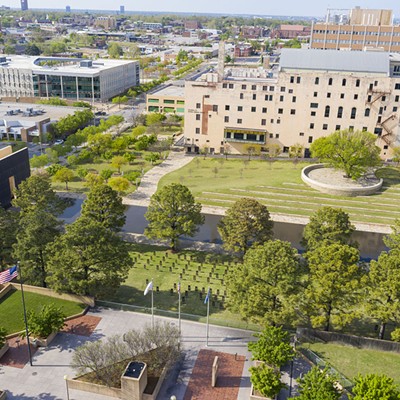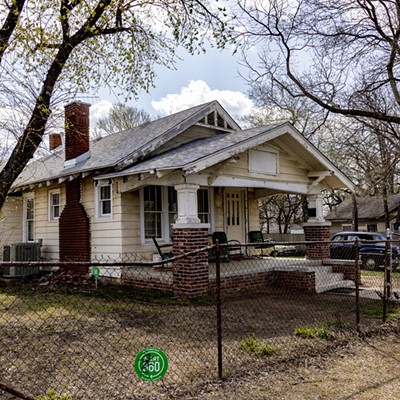When asked how the Oklahoma City bombing changed him and the city he lives in, Rev. Don Alexander remembers his father’s words.
“My dad built his ministry at First Christian Church between 1942 and 1960,” Alexander said. “He was killed in an airplane crash in 1960, but the key phrase from his ministry was this: ‘It’s not what happens to us, but what we let happen to us do to us.’ That’s what really counts.”
Those words strengthened him in the days immediately following what was then the worst act of domestic terrorism in American history, when he was senior pastor of the First Christian Church and the building was transformed overnight into a command center for grieving families, journalists and rescue workers.
Those words still comfort him when he thinks about that April morning two decades ago.
Empty chairs
“I was down at the memorial this morning,” he said. “What those chairs represent, those 168 empty chairs ... what an inspiration for the people who designed the memorial, seeing the power of what an empty chair can represent. Think of the families devastated by what happened. Think of the loss of family continuity, the grief that continues to live in those families for years. They may come to terms with it, but their families have been absolutely changed forever.”
The memorial, those empty chairs, reminds Alexander of the empty chair used in the Passover celebration.
“In a Jewish household, they set an empty chair at the table in case the Messiah comes. I think it’s a beautiful symbol,” he said. “We see the chair as representing the loss of life, but I think it’s also a hopeful symbol. Someone else is going to sit there now. We make it our business to live in such a way to let our future honor the person we lost. I hope that happens in our lives here.”
That determination to find and cultivate the good in the midst of horror was the reason the First Christian Church at 36th Street and Walker Avenue was immediately transformed into a staging area for rescue workers, media members, supply organizers and mourners.
Alexander called the American Red Cross to ask what he could do to help, and they asked the church to be the Family Disaster Relief Center.
“A lot of people in OKC faced a real frustration, simply not knowing where to get ahold of someone or simply wanting to help. Soon after I talked to the Red Cross, the head of the Oklahoma Funeral Directors Association called,” Alexander said. “He was looking for a place where families could gather to be notified and to try to help in the identification of victims. They just needed a central gathering place.”
Overnight, the church was filled to capacity. Red Cross and Salvation Army workers, funeral directors, chaplains, mental health professionals, family members, even soldiers from the Oklahoma National Guard and a therapeutic spider monkey all found their headquarters in a different part of the building.
‘Heroes of faith’
The church’s Jewel Box Theatre, a standalone building at the end of the complex, became the place where national and local media would gather. The youth center was filled to bursting with donated supplies. Thousands of people were served in the dining room, which was open 24 hours a day for at least two weeks. If McVeigh’s fertilizer bomb broke this city’s heart, the church got it beating again.
“It provided, I think, a very healthy atmosphere in the midst of all that chaos,” Alexander said. “Food and coffee were actually the focus of most of what went on. There were three or four hundred people at a time in our dining room almost constantly for two and a half weeks. Families would adopt a table and gather around it, waiting for news. They were always full of hope, but as the days passed, they knew that whatever news they received was probably going to be bad. Trying to describe the atmosphere is difficult. Some families actually got notification that their loved one had died, and after taking care of arrangements, they would return to the dining room in order to be present for other families who were waiting. They knew how difficult that waiting was. There was a real heroism present in that.”
Alexander, now retired, calls those people his “heroes of faith.” And, while there are too many heroes born from that terrible morning to recount, he said the lessons to be learned (“what we let happened to us do to us”) should be remembered daily.
“We had a rabbi who came from the Boston area, and he was a grief counselor. One of his key phrases was, ‘One moment of suffering makes all the world kin.’ I think that summarized the spirit that was moving in Oklahoma City,” he said. “There was no ‘you’ or ‘I’ or ‘them’ anymore; only ‘us.’ I think what the bombing did was reveal the depth of goodness and heart that was already present in this city.”
Print headline: Beating heart, After the Oklahoma City bombing, First Christian Church was used as a communication post, a place to get food and coffee and to notify families about their loved ones.

